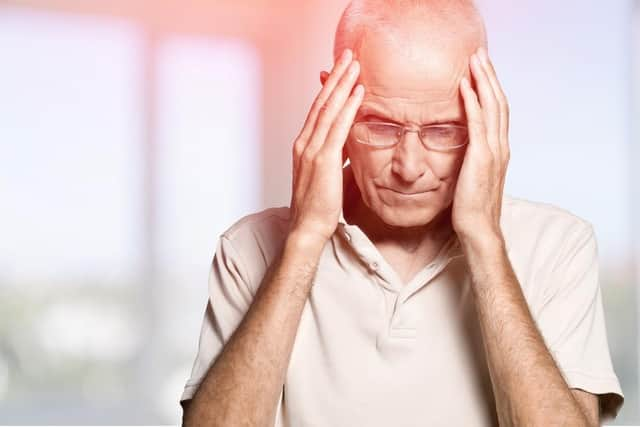Can the Astrazeneca Covid vaccine cause a stroke? Risk of ischaemic stroke after jab - and symptoms explained
and live on Freeview channel 276
Doctors are being urged to look for signs of a stroke in people who receive the AstraZeneca Covid vaccine, after three young patients were admitted to hospital after their vaccination, and one sadly died.
Although experts have stressed that the chances of suffering a stroke are small, the team has advised the NHS to look out for patients with signs of ischaemic stroke within around one month of vaccination.
But what is an ischaemic stroke and what are the signs?


Here’s what you need to know.
What is a stroke?
Advertisement
Hide AdAdvertisement
Hide AdA stroke is a serious life-threatening medical condition that occurs when the blood supply to part of the brain is cut off.
The NHS website explains that strokes are a medical emergency and urgent treatment is essential.
The sooner a person receives treatment for a stroke, the less damage is likely to happen.
Therefore, if you suspect that you or someone else is having a stroke, phone 999 immediately and ask for an ambulance.
There are two main causes of strokes. These are:
Advertisement
Hide AdAdvertisement
Hide Ad- ischaemic – where the blood supply is stopped because of a blood clot, accounting for 85 per cent of all cases
- haemorrhagic – where a weakened blood vessel supplying the brain bursts
It is ischaemic strokes in particular that experts are urging doctors to look for signs of after people have received the AstraZeneca Covid jab.
There's also a related condition called a transient ischaemic attack (TIA), which is where the blood supply to the brain is temporarily interrupted.
Advertisement
Hide AdAdvertisement
Hide AdThis causes what's known as a mini-stroke and can last a few minutes or persist for up to 24 hours.
TIAs should be treated urgently, as they're often a warning sign you're at risk of having a full stroke in the near future. You should seek medical advice as soon as possible, even if your symptoms get better.
Certain conditions can also increase the risk of having a stroke, including:
- high blood pressure (hypertension)
- high cholesterol
- irregular heart beats (atrial fibrillation)
- diabetes
What are the symptoms of a stroke?
The main symptoms of stroke can be remembered with the word FAST:
Advertisement
Hide AdAdvertisement
Hide Ad- Face – the face may have dropped on 1 side, the person may not be able to smile, or their mouth or eye may have dropped.
- Arms – the person with suspected stroke may not be able to lift both arms and keep them there because of weakness or numbness in 1 arm.
- Speech – their speech may be slurred or garbled, or the person may not be able to talk at all despite appearing to be awake; they may also have problems understanding what you're saying to them.
- Time – it's time to dial 999 immediately if you see any of these signs or symptoms.
Treatment for a stroke
Advertisement
Hide AdAdvertisement
Hide Ad“Treatment depends on the type of stroke you have, including which part of the brain was affected and what caused it,” explains the NHS website.
Strokes are usually treated with medication, which includes medicines to prevent and dissolve blood clots, reduce blood pressure and reduce cholesterol levels.
Procedures may also be required to remove blood clots in some cases. Surgery may also be required to treat brain swelling and reduce the risk of further bleeding if this was the cause of your stroke.